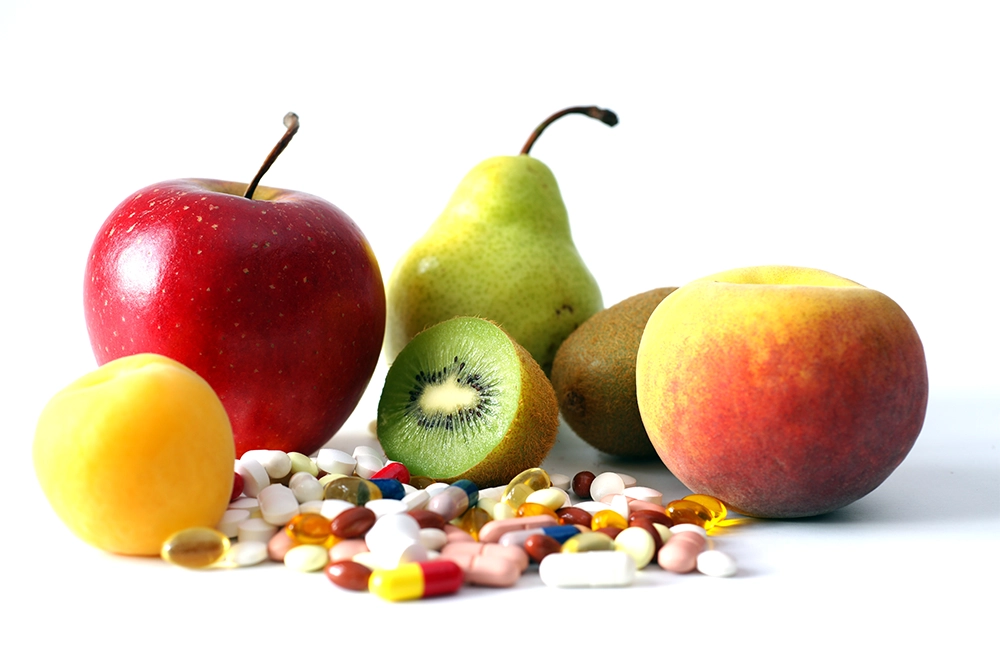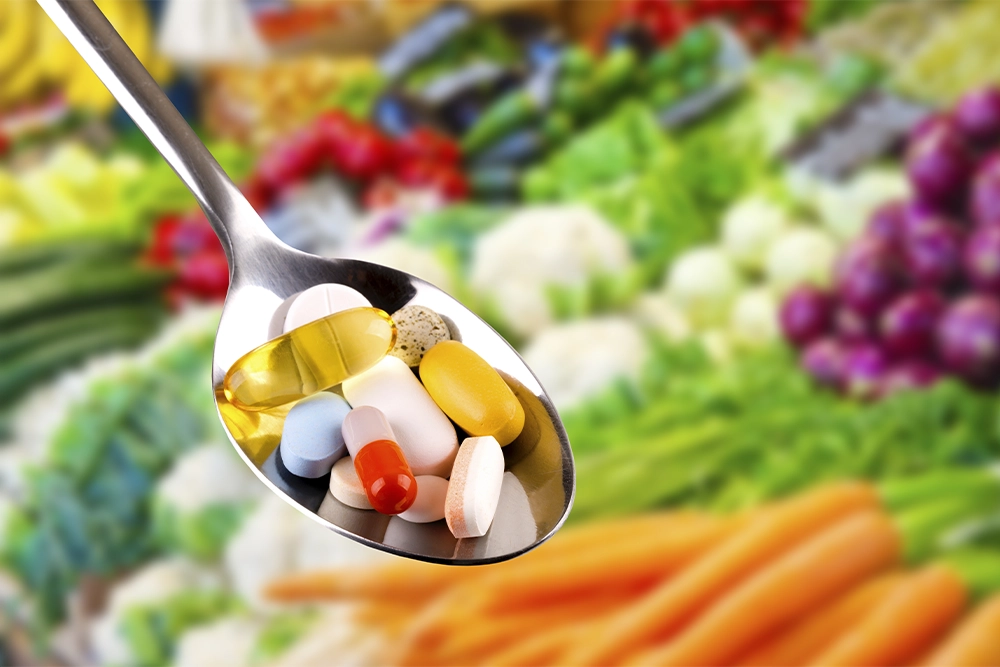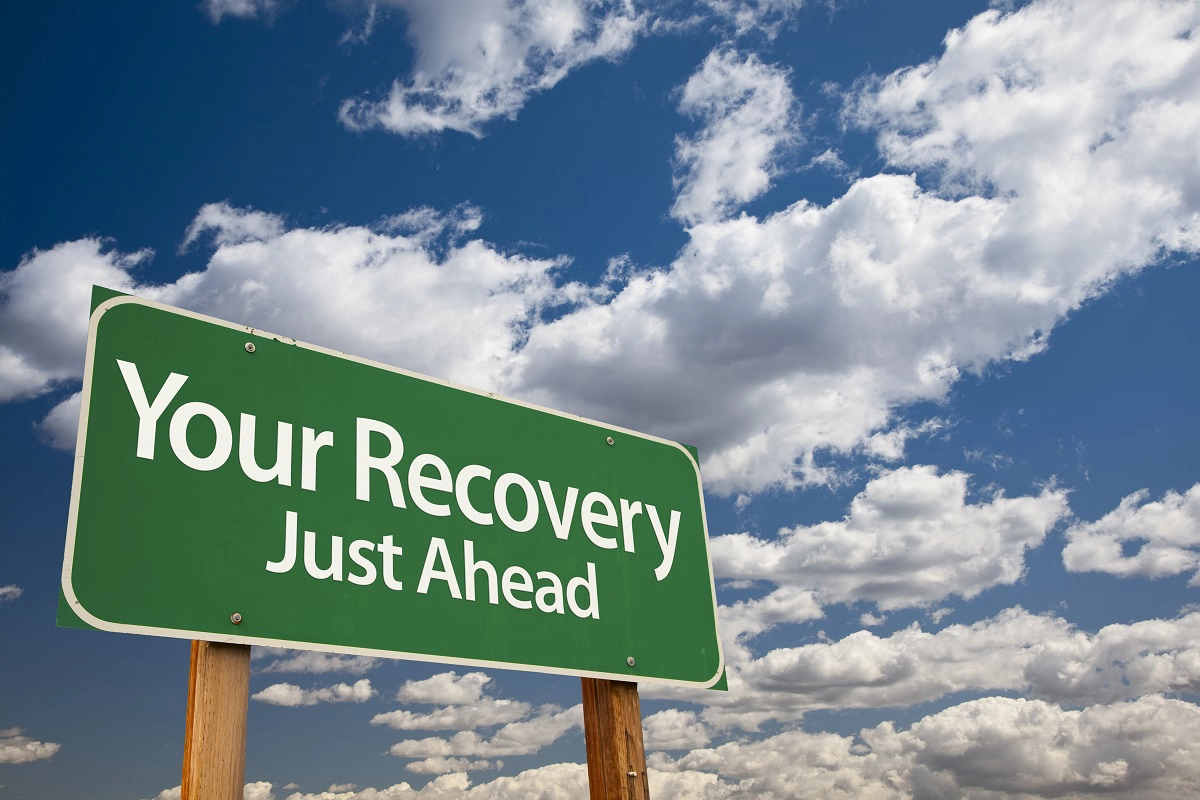When it comes to recovering from drug addiction, it isn’t just withdrawal that’s going to cause depression, drowsiness, and headaches. One major cause of those symptoms is malnutrition. Without getting the right nutrition, a person in recovery will have more complications during the process. Here, we’ll share some tips on how to build healthier eating habits during drug addiction recovery.
Drug Addiction and Common Diet Problems
People who are suffering from drug addiction may become too distracted because of the bad habits that they fail to take regular healthy meals. It is common for users to go on for days without eating. And when they do take in food, they are not very mindful of the choices they’re making.
It is unfortunate that today’s food industry offers a lot of foods that are not healthy. This makes it very easy for people to deal with their hunger without getting the right nourishment. Eating a lot of junk will eventually lead to malnourishment.
When a person eats unhealthy foods, he or she may get sufficient calories. However, important vitamins and minerals are not met. This can cause serious health consequences if they continue on this kind of eating habit.
There are also addictive substances that can deplete the body of its nutrients as well as damage the body’s organs such as the intestines and liver. This greatly reduces the body’s ability to absorb nutrients.
The kind of nutritional deficiencies may depend on what drug the person is addicted to. For example, with those who have an alcohol addiction, they can face a lot of deficiencies since constant alcohol consumption can result in the body ridding itself of nutrients rather than absorbing them.
Alcoholics can suffer from anemia because of a lack of vitamin B. Not getting enough vitamin K, on the other hand, will cause a person to have issues with the normal way that the blood clots. When this happens, wounds will become slower to heal. Deficiencies in vitamin C will make the immune system weak.
For people who abuse opioids, they typically suffer from low levels of D and B vitamins, iron, and calcium. Cocaine users commonly face health issues that result from the body not getting enough omega-3 fatty acids.
Why It’s Easy to Overlook Nutrition During Recovery
Many people undergoing drug recovery don’t really think about their diet when they are in their treatment. Their focus is mainly on the withdrawal process and the uncomfortable symptoms they’re experiencing. It is rare to hear about having a well-balanced diet and eating healthy habits as an important part of recovery from drug addiction.
A part of the recovery process is becoming more physically active and learning new activities such as sports. However, patients in an addiction treatment centre won’t be able to take part in those activities is they are undernourished.
But if they prioritize their health by eating healthy and getting enough sleep, they’ll be able to have the energy to play sports or workout. Being active during recovery is important because it can boost the production of feel-good hormones in the body. This greatly helps in making recovery from drug addiction a success.
Many patients in an addiction treatment centre may easily overlook their nutrition. While they know that they ought to eat more healthy foods like fruits and veggies, but they may end up eating comfort foods that are high in fat and sugar.
It’s easy to resort to an unhealthy diet because withdrawal is a difficult time and they may need all the comfort they can get, even if it means eating foods that bring no nutritional value and may even add to the risk of developing health issues like diabetes and heart disease

Drug Addiction and Poor Nutrition
Addiction to drugs can lead to poor nutrition. When a person regularly consumes alcohol or drugs, the body becomes deprived of the necessary nutrients. A lot of the substances that people become addicted to can either increase or suppress their appetite. For example, meth users are able to go for days without needing to eat. Marijuana users, on the other hand, are known to binge eat.
For many people suffering from addiction, eating becomes skewed because of their drug use. And since they’re not taking the needed nutrients, they become malnourished. During recovery, this has to be taken care of. An unhealthy diet can make recovery difficult. It can cause sleep problems, headaches, as well as low levels of energy.
Withdrawal symptoms and the effects of malnutrition can be very similar. It may be difficult for patients to identify if what they’re feeling are withdrawal symptoms or if they’re just hungry. What for certain is that maintaining a healthy diet helps a lot in the drug addiction recovery process.
Different Substances and Their Effects on Nutrition
An unhealthy diet’s major side effect is malnutrition. When a person is malnourished, he or she does not have the needed nutrients in the body. With an individual who is suffering from addiction, the risk of being malnourished is high. Alcohol and other substances can affect the body’s ability to take in and absorb nutrients.
For many people who are addicted to drugs, it is common that they become unmindful of their dietary needs. This is because they’ve become too reliant on the substance to relieve both emotional and physical discomforts. Here are the different substances and how they affect a person’s nutrition.
Alcohol
When a person consumes a lot of alcohol on a regular basis, the body becomes deprived of an essential vitamin which is thiamine. In our body, every tissue uses this vitamin. The tissues in our kidneys, liver, heart, and brain need thiamine so that they will function properly.
When the body has low levels of thiamine, there is a higher risk of developing heart disease and suffering from heart failure. The brain is also affected because if a person is deficient of this vitamin, he or she is at risk of experiencing dementia as well as a condition called Wernicke-Korsakoff syndrome. This condition affects a person’s memory, vision, and coordination.
A person with alcohol addiction may also develop metabolic syndrome. This is when he or she has high blood pressure, high cholesterol, and high blood sugar. It increases the chances of developing heart disease and diabetes.
Opioids
Consuming opioids slow down how the body functions, making users feel sleepy. Not only that, but opioids also slow down metabolism and digestion. What this means is that the body won’t be able to process the nutrients coming from the foods efficiently. An obvious effect of digestion that is disrupted is constipation.
During withdrawal from opioids, meal plans may be disturbed. For example, the patient recovering from opioid addiction may experience nausea, diarrhea, and vomiting while in the process of withdrawal. With these symptoms, the consumption of food and water may be disrupted and the body won’t be able to get the needed fuel to function well.
Stimulants
The main concern for individuals who are addicted to stimulants is significant weight loss. Examples of stimulants include prescription meds for ADHD, meth, and cocaine. Users of these substances are prone to develop anorexia and other eating disorders.
When stimulant users use their drug of choice, they can go on for days without needing to eat or sleep. When the drug wears off, they will begin to feel the hunger and will often go on a binge. Such dramatic eating habits contribute to malnutrition.
In addition to that, many crystal meth users will often face problems when it comes to oral hygiene. So, they may have trouble consuming solid foods because of the pain they feel while they’re chewing or may have trouble chewing due to missing teeth.
Eating Disorders and their Effects on the Body
Individuals who have alcohol or drug use disorders are more likely to develop eating disorders than those who do not have any issues with substance abuse. Various eating disorders can affect a person’s body in many different ways. However, most of them share some common side effects.
When a person begins consuming fewer calories, the muscles will start breaking down. What we have to remember is that the heart is also a muscle, and so the heart breaks down as well. This means the individual’s blood pressure and pulse can drop and the effects of such changes can be life-threatening.
Purging will also affect the body because it deprives the person’s body of the needed electrolytes. So, when a person induces vomiting or uses enemas, diuretics, or laxatives, the electrolyte level of the body becomes affected. Electrolytes are necessary for helping muscles flex. Without them, the heart will begin to struggle to beat.
With both food deprivation and purging, the digestive system becomes disrupted. After a while, a person with these habits will find that their body will struggle to break down food and make full use of it. Constipation is the usual consequence of this disruption of the digestive system.
The brain can also be affected when a person has an eating disorder. The brain won’t have the needed nutrients that it needs. Sleep problems may emerge if an individual eats too much or too little. A body that doesn’t have enough electrolytes will experience issues in the nervous system such as numbness and seizures.
Hormone imbalance can also be a problem with malnutrition. The production of hormones will slow down and this can cause low levels of energy, disrupted menstruation for women, and also low body temperature. Eating disorders and drug addiction have very similar effects on the body. Both can deprive the body of necessary nutrients.
When eating disorders and drug addiction co-occur, then there can be a devastating impact on the individual’s body. Nevertheless, both can be treated at the same time. Recovering addicts who are in good drug addiction treatment centres will begin to notice improvements in their body after some time.
What Nutrients are Needed to be Healthy?
Nutrients are substances that help in promoting wellness and growth in the body. There are two categories of nutrients: micronutrients and macronutrients. Examples of macronutrients are water, proteins, fats, and carbohydrates. While micronutrients are vitamins and minerals. Both types are needed for the body to function well.
What are Vitamins and Minerals?
The body doesn’t need a lot of vitamins and minerals but they are still essential. If a person doesn’t have enough vitamins and minerals, then there may be harmful effects. For example, without enough thiamine or vitamin B1, an individual may suffer from Wernicke-Korsakoff syndrome.
Depression, sleep problems, and fatigue may be experienced if there’s not enough B vitamins, folate, or iron in the body. Some of the best foods to get vitamins and minerals are vegetables, fruits, dairy, seeds, peanuts, peas, beans, and whole grain cereal or bread.
By adding foods that are rich in vitamins and minerals to the daily diet, the body can function normally and properly. It is important to have balanced meals by adding whole grains, vegetables, and fruits.
What are Carbohydrates?
Most of the energy that the body uses comes from carbohydrates. If the body doesn’t get any carbs, then many body parts will find it difficult to function properly. Blood sugar levels will also experience fluctuations. The effects of such disruptions can cause anxiety, depression, irritability, and feeling foggy.
Some of the best sources of carbs are nuts, beans, vegetables, potatoes, whole fruit, low-fat dairy, whole grain cereal and bread. If a diet is low in carbohydrates, sleep can be disrupted and the individual may experience cravings. Do note that cravings for carbohydrates and that of drugs can be very similar.
What are Fibres?
Fibres are a unique kind of carbs. But unlike other types of carbohydrates, fibres do not get to be converted into energy. They just pass through our body without them being digested. But they do work to regulate the body’s blood sugar and helps to lower the blood cholesterol. It also helps in moving other foods through the body’s digestive system.
Some of the best sources of fibres are tomatoes, carrots, apples, brown rice, wheat bread, beans, nuts, and oatmeal. If a person is not eating enough fibre, then there’s a risk of having an increased high blood sugar, constipation, and cholesterol problems.
What are Proteins?
Protein, along with a lot of hormones are comprised of amino acids. Our hormones regulate our mood. When we don’t get the right amount of protein then that means we’re not getting enough of the needed amino acids. This, then, lowers the body’s hormone production. When the levels of hormones are low, then we are prone to feeling anxious, angry, and sad.
The healthy sources of proteins are nuts, beans, low-fat dairies, eggs, chicken, and fish. Eating foods rich in protein will also help in boosting the immune system of the body. This fights infections and diseases. Many addictive drugs and other substances can weaken the immune system. Add a low-protein diet to that equation and the immune system will surely grow weaker.
What are Fats?
For many people, they want to lessen fat intake in their daily diet. But what we should remember is that not all kinds of fat are unhealthy. Good fats in moderate amounts can help in improving mood and the functioning of cells all of over the body. Fats are also the source of reserve energy which the body makes use of when there are not enough carbohydrates.
Some sources of good fats are omega fatty acid supplements, nuts, seeds, dairy, and fish. What should be remembered is that when too much of the unhealthy fats are consumed, there is a greater risk of becoming obese and along with that are various health issues that may arise.
Why is Water Important?
Water is vital in keeping a healthy body. Water protects the body’s internal parts, lubricates the joints, as well as helps one’s body in using other nutrients. Our organs such as the kidneys and liver need water in order to function properly. Also, water keeps us from becoming constipated.
To ensure that enough water is in the body, some of the best sources of water are low-sugar sports beverages, low-fat milk, soup, cucumbers, strawberries, watermelon, and of course, drinking a healthy amount of water daily. Without enough water, dehydration can happen and this may cause fever, confusion, dizziness, and irritability.
Why Nutrition is Important while in Drug Addiction Recovery
The main components of addiction recovery are therapy and counselling. In these programs, patients are taught healthy ways on how to cope with challenging behaviours and emotions. But if nutrition is not taken cared of during the recovery process, the brain won’t have enough fuel to absorb all these new information and learn successfully
Before any rehab programs are implemented, patients in an addiction rehab facility are first provided with healthy meals so that they will regain their nourishment. This is an important step before getting them into other programs like therapy.
The brain has to be healthy for it to absorb vital information. The coping skills that they can learn will just go to waste if they can’t process them properly. In rehab centres, a dietician has an important role in making the patients healthy again so that they will be ready to take part in the recovery program fully.
Physicians in the rehab check for eating disorders in patients. The patients are asked if they are eating enough healthy food, what food they’re eating back at home, and their weight is checked. Apart from that, lab reports are also checked to see if they’re getting enough nutrients in their body.
The assessment of patients’ health begins with weight. Along with that, the nutritional levels, cholesterol levels, and the heart rate are also evaluated. Dieticians make sure that the patients don’t turn to food for their coping from drug withdrawal.
While physicians try their best to start the patients on healthy diets as soon as they enter the program, withdrawal may prove to be a challenge since it disrupts most of the meal plans.
Related article: How to Overcome Common Challenges During Drug Addiction Recovery
What are the Effects of Detox to Nutrition?
During the detox process, many patients experience weight gain. This is because when the drugs begin to leave their body, their appetite starts to increase. Physicians check their weight closely since it can become risky if a person gains a lot of weight in a short span of time.
There are many health consequences if a person eats a lot of food. For example, heart disease, diabetes, and obesity may develop along with other health problems. But a healthy increase in appetite can be good for patients who entered the recovery program who have low body weight.
There are some patients who find it challenging to eat properly during their detox phase. With marijuana and alcohol withdrawal, appetite loss is a common symptom. Opioid withdrawal can cause vomiting, diarrhea, and nausea. Doctors have to ensure that the patients in addiction recovery do not lose too much of their weight during this time.
Some of the prescription meds used during the detox phase can also complicate the patients’ diet plans. For example, disulfiram and naltrexone are known to cause vomiting and nausea. Acamprosate, on the other hand, can increase one’s appetite but it can also make food taste different. Buproprion, buprenorphine, and methadone’s effects include appetite changes and constipation.

What is Nutrition Therapy?
Patients during detox usually have structured meal plans. This healthy diet has positive effects that will become more apparent as they progress through their recovery program and start therapy.
The recovery can be really fast when the patients have structured meals. A good rehab facility serves the three basic meals and snacks. When there’s more structure, the chances for recovery are more likely.
The meals have to have a good balance between carbs and protein. Each of the meals has to include vegetables and fruits. With nutrition therapy, it’s not just about ensuring that the patients eat good food while they are in treatment. The dieticians also educate the patients on the difference between craving for drugs and craving for food.
Other than that, patients are also taught about how they can build their own healthy meal plans so that they’ll know how to shop for food and then prepare nutritious and well-balanced meals in their own homes. This way, after their treatment in the recovery centre is completed, they’ll know how to ensure that they’re getting their nutritional needs.
How Eating Disorders are Treated
For patients recovering from drug addiction and also have eating disorders, they need a more intensive kind of therapy compared to those who are only being treated for their drug addiction. Such patients go through individual therapy and also have regular appointments with the dietician.
When a patient has the habit of purging or binge eating, the therapy is about how to reduce the problematic behaviours and how to stay safe. For example, if an individual always purges whenever eating a particular food, then it is most likely that they won’t be served with that food until such time that they can learn healthier coping skills. They are taught not to associate that food with the act of purging.
Another common kind of therapy is exposure therapy which is used in helping patients to overcome the anxiety that they feel whenever they are presented with certain foods. There may be times when “challenge foods” are given to them so that they will be exposed to those foods.
Dining out is also practiced as well as practicing how not to eat more than what’s in their diet program. If the patients will eat more, then they may feel that they need to purge or do other harmful behaviours.
When maintaining sobriety, there is a higher chance of success if the body is nourished and healthy. To do this, comprehensive meal plans need to be provided during drug addiction treatment.
People who are going through recovery ought to learn how to prepare their own healthy meals and stick to a good diet. This ensures that they are energized and feel good about themselves. A healthy diet prevents relapse and greatly helps in the recovery of the patients.
How to Build Healthier Eating Habits
When it comes to food, people with drug use problems typically go for easier choices. These are usually processed foods that have a lot of sweeteners, fat, and salt. Such foods offer a sugar rush and instant gratification. Corn syrup and sugar in themselves are addictive and will not help at all in an already dysfunctional lifestyle.
However, if a person will learn about good nutrition and proper planning, they will make better choices when it comes to the food that they’ll eat. They also need to be committed to sticking to a healthy diet. Eating healthy will pave the way to bigger changes in a drug addict’s life.
In building healthier eating habits, there are two fundamental guidelines that may be accomplished at the same time. The first one is eating less sugar. One way to do this is to start reading labels. Avoid foods that have corn syrup, HFCS, or high sugar. You can see if the food has them in the ingredients list.
The second is eating less processed food. You’ll know if the food is processed when you start seeing that it has ingredients with plenty of words that you are not familiar with. You wouldn’t want to put those inside your body.
Those are the two things to remember on what not to do. Now, let’s take a look at the things that ought to be done to have a healthier diet. The rule here is actually quite simple; eat plenty of whole foods. These are legumes, vegetables, brown rice, and whole oats, among the many.
Know what healthy fats are and choose those instead of unhealthy ones. Some sources of healthy fats include seeds, nuts, flaxseed oil, and olive oil. You can enjoy a wide variety of healthy foods that will give proper nourishment to the body.
Building Better Habits for Self-Care
Nutrition is vital to supporting one’s drug addiction recovery. It creates better mental and physical health. Learning how to choose good food has so many benefits. It makes you feel good about yourself for taking on such responsibilities and being able to do them well. When you fail to choose good food and stick to healthy habits, then you’re not taking care of yourself enough.
During recovery, habits are very important. You’ll learn to discard the bad ones and create healthier habits that help in making you happy and keeping you healthy. It may not be easy at first but with enough practice, it will be easier as you go along. Hopefully, you’ve learned a thing or two on how to build healthier eating habits during drug addiction recovery.
Related article: Drug Addiction Recovery: How to Set Boundaries for Your Loved One</p







